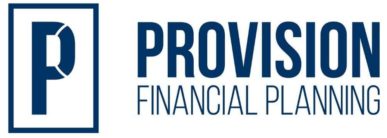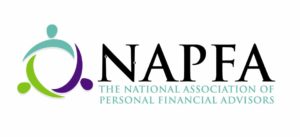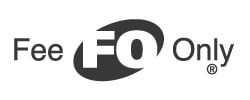If you’ve done any research on how to find and choose a financial advisor, you probably ran across terms like Fiduciary, Independent, Fee-Only, and Fee-based. It is probably not at all clear on what these words actually mean. Don’t beat yourself up, it can be confusing even for advisors.
Finding and choosing are actually two different things. The first part will involve choosing one because it is the more involved part. Finding one will also make more sense once you’ve read through the questions.
Jason Zweig of the Wall Street Journal wrote an article a few years ago titled The 19 Questions to Ask Your Financial Advisor. What I liked most about this list and his suggested answers is that it allows you to choose an advisor without knowing exactly what all those terms mean that were mentioned earlier.
The 19 questions are bolded below. The parentheses contain his suggested answer. Please feel free to print his article when interviewing potential advisors. The italics are my answer and commentary.
- Are you always a fiduciary, and will you state that in writing? (Yes.) Yes. The key here is always. The term Fiduciary has been corrupted somewhat so I wrote an article all about it. For example, Fee-Based advisors are able to charge fees for advice and sell you something for a commission. They are acting as a fiduciary when charging you a fee, but they are not when they are earning a commission. That is why it is important to get it in writing. Look for something like our Fiduciary Oath.
- Does anybody else ever pay you to advise me and, if so, do you earn more to recommend certain products or services? (No.) No. This defines Fee-Only. As a Fee-Only advisor, the only compensation I receive is from my client, which eliminates many of the conflicts so prevalent in the financial industry.
- Do you participate in any sales contests or award programs creating incentives to favor particular vendors? (No.) No. Any advisor who is Fee-Only will by definition answer no to this one.
- Will you itemize all your fees and expenses in writing? (Yes.) Yes. A side benefit of Fee-Only advisors is not only transparent pricing but it is also fairly simple to track. You’ll get a list of your costs at least quarterly.
- Are your fees negotiable? (Yes.) Yes, in unique situations. To be fair to all my clients, the fee is the same. Would you be happy if you are paying one amount and a different client is paying less simply because they asked for a discount? I don’t think you would.
- Will you consider charging by the hour or retainer instead of an annual fee based on my assets? (Yes.) Yes. We offer ongoing financial planning for a flat annual fee.
- Can you tell me about your conflicts of interest, orally and in writing? (Yes, and no adviser should deny having any conflicts.). If you are paying me an asset-based fee, I will have an incentive to recommend against any strategies that involve taking money out of the portfolio and for strategies that increase the value of the portfolio, like a 401k rollover. Mortgage payoff strategies are a great example. I manage this conflict primarily by reminding the client of this conflict any time a situation arises where we discuss a strategy that could involve pulling money out of the investment account. I am not aware of any other conflict.
- Do you earn fees as adviser to a private fund or other investments that you may recommend to clients? (No.) No, this would be considered a conflict of interest.
- Do you pay referral fees to generate new clients? (No.) No, but have in the past.
- Do you focus solely on investment management, or do you also advise on taxes, estates and retirement, budgeting and debt management, and insurance? (Here the best answer depends on your needs as a client.). I advise on all these things and more. I agree with Jason that the best answer depends on your situation. One thing to note; there is a good chance you would pay a fee equal to or more than my fee for just investment management. I do not understand why anyone would knowingly pay the same fee for less comprehensive advice.
- Do you earn fees for referring clients to specialists like estate attorneys or insurance agents? (No.) No. I will recommend professionals as needed but never receive any compensation for doing so.
- What is your investment philosophy? In a sentence, index-oriented and broadly diversified. Read my investment philosophy here.
- Do you believe in technical analysis or market timing? (No.) No. There are now decades of academic research against market timing.
- Do you believe you can beat the market? (No.) No. There are decades of research against this too. For this reason I focus on helping my clients get as close as possible to matching global market returns.
- How often do you trade? (As seldom as possible, ideally once or twice a year at most.) I trade as needed. There are typically two scenarios that would bring about that need. The first is simply replacing a fund that is no longer prudent to own. This should be extremely rare. The second reason a trade is needed is to rebalance the portfolio. This would happen when a holding deviates from its long-term target allocation and we need to bring it back to the original allocation.
- How do you report investment performance? (After all expenses, compared to an average of highly similar assets that includes dividends or interest income, over the short and long term.) You will have online access to performance every day. All performance will be shown after asset-based fees.
- Which professional credentials do you have, and what are their requirements? (Among the best are CFA [Chartered Financial Analyst], CPA [Certified Public Accountant] and CFP, which all require rigorous study, continuing education and adherence to high ethical standards. Many other financial certifications are marketing tools masquerading as fancy diplomas on an adviser’s wall.) I have the CFP, which stand for CERTIFIED FINANCIAL PLANNER. I also have the EA, which stands for enrolled agent and is the highest credential the IRS awards. To represent a taxpayer before the IRS, you must be an Enrolled Agent, CPA, or attorney.
- After inflation, taxes and fees, what is a reasonable estimated return on my portfolio over the long term? (If I told you anything over 3% to 4% annually, I’d be either naive or deceptive.) This depends entirely upon your asset allocation. I agree with Jason’s answer if we are talking about a 60% stock, 40% bond portfolio.
- Who manages your money? (I do, and I invest in the same assets I recommend to clients.) Ditto, nothing to add here.
Now that you are equipped to properly choose a financial advisor you have to find one. Although there are probably other good tools out there, the directories below all require an advisor to be Fee-Only, which goes a long way to getting the answers to match.
From there, you can use these questions to choose your advisor.
I obviously have a bias here. Simply google “how to find a financial advisor” and you’ll receive similar advice and links.
National Association of Personal Financial Advisors – NAPFA
NAPFA has four big requirements for membership, among others. Only about 1% of advisors have been accepted for membership.
The first requirement is to be Fee-Only, so the only compensation the advisor gets is from the client. The second is independence, so the advisor is free from the sales pressures of the big firms. The third is comprehensive, so the advisor focuses on way more than just investments. The last requirement is to act as a Fiduciary at all times, not just sometimes.
XY Planning Network – XYPN
XYPN requires NAPFA membership but also requires its advisors to offer a monthly retainer fee with a focus on working with Generations X and Y who may not have accumulated assets yet.
Similar to NAPFA and XYPN, but requires the advisors to offer hourly services.
Fee Only Network– Requires NAPFA membership.




